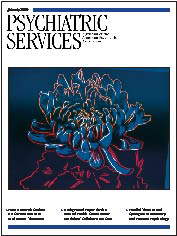Ironies of Imprisonment
Sadly enough, most books resemble mediocre sandwiches: a crusty title, an attractive cover, a back laden with laudatory reviews and some biography, and a middle that is often a mountain of irrelevance. This work by Michael Welch does have the expected typical front and back, but there is a sizable portion of meat at its center that will require real mental teeth.
Most people, including physicians, know very little about prisons, how they work, their inherent problems, or even the process of incarceration. Students of the philosophy of incarceration are frequently exposed to Michel Foucault's Discipline and Punish: The Birth of the Prison, which graphically illustrates that the drill is to first control humans by inflicting unspeakable wrath upon the body and later, by more subtle means, to control the mind. Incarceration is not intended to be a day at the beach, but our current system has been rendered inefficient, expensive, and lacking in meaningful solutions.
Welch is a scholar in the field of modern incarceration. A neo-Marxist sociologist by academic background, his experiences are wide, his writing clear, and his research thorough. The chapters in this book cover topics ranging from prison violence to the war on terror; the author debunks myths and delivers controversy in every chapter. Proponents of privatization of prison services will be quick to disagree with him, given that the arguments are very much like the privatization of any government service. The for-profit motive is quickly accused of insensitivity and scraping, just as the public sector is accused of being bureaucratic, swollen, inherently wasteful, and terribly inefficient. The reader will have to think about many points the writer makes, but the rich bibliography will give the student a head start.
I particularly recommend chapter 9, "Punitive Profit," about government secrecy. The inference that care is routinely denied as a way of further controlling and depriving inmates is hardly the case but certainly does happen at times, and headlines await those stories. Certainly many of the prisoners are simply mentally ill and have contributed to the realignment of prison populations into unspoken psychiatric units with the obvious opportunities for calamitous outcomes. Fortunately, judges now are buying into the trend of treatment-based programs, especially for functional chronic psychiatric patients with addictions, as opposed to the earlier prison model of simple swift and severe punishment.
This book can be read piecemeal or in its entirety and lends itself to direct confrontation with many "acceptable myths" about prisons. It is overall a very admirable work that I can highly recommend to physicians or other practitioners who might consider correctional medicine as a career or to students who are interested in the philosophy and development and practice of the prison system.
Dr. Einspruch is clinical professor of psychiatry at the University of Texas at Dallas, Southwestern Medical Center, and clinical associate professor of psychiatry at New York University Medical Center in New York City.



